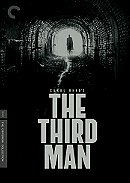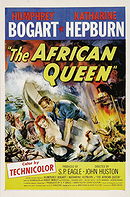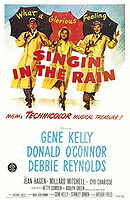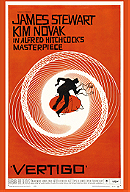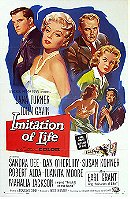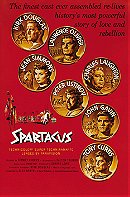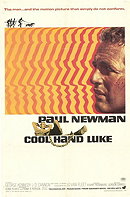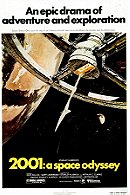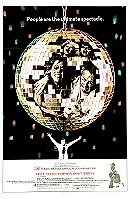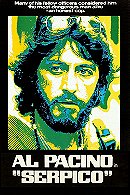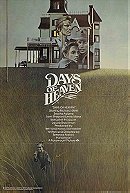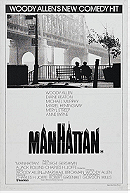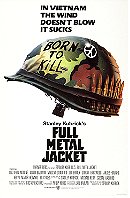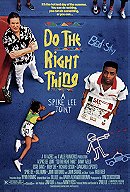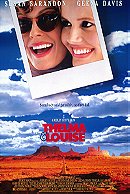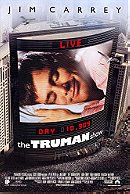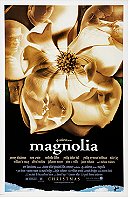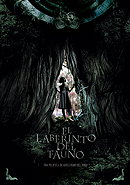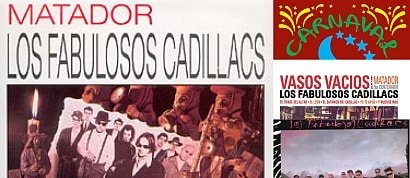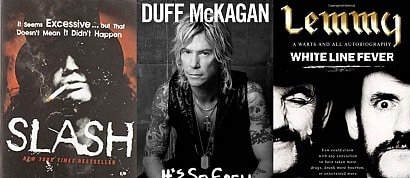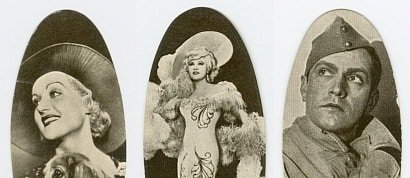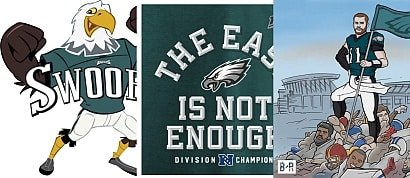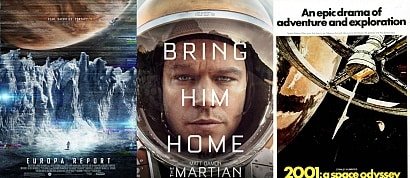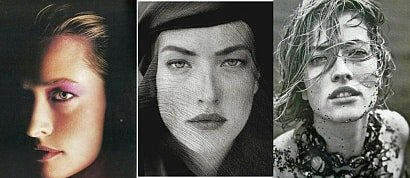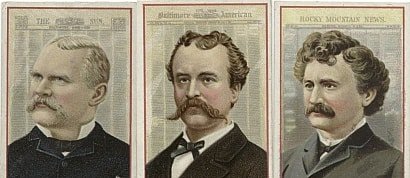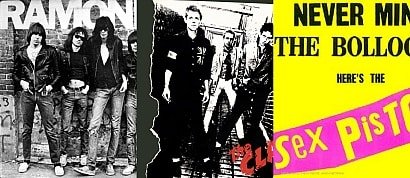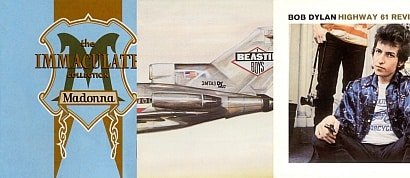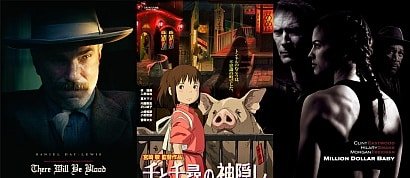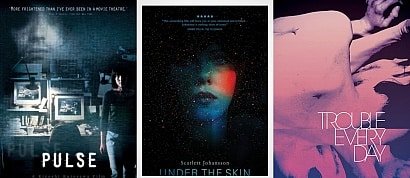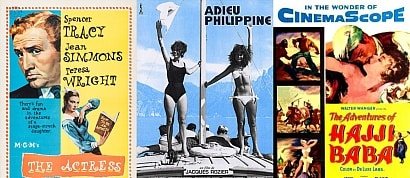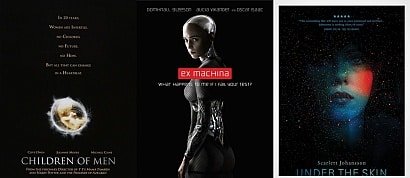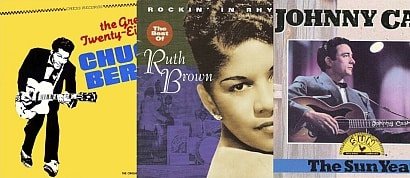20 Classic Films Not Nominated For Best Picture
Sort by:
Showing 20 items
Decade:
Rating:
List Type:
The Playlist ranks 20 films that garnered at least one Oscar nomination, but not for the big prize.
For their list of 50 Great Movies That Were Not Nominated for Any Oscars, click here.
For their list of 50 Great Movies That Were Not Nominated for Any Oscars, click here.
Brief Encounter (1945)
David Lean's unassailable masterpiece of stiff-upper-lip thwarted romance did pick up nods for Lean himself as director and lead actress Celia Johnson, as well as one for screenplay. And even in retrospect it feels like that year ("Brief Encounter" actually competed at the 1947 Oscars) the Best Picture statue would inevitably have gone to "The Best Years of Our Lives" — a film that dealt directly with the aftermath of the war that just ended. But despite an otherwise strong field too (no one would suggest that it should have replaced either "It's a Wonderful Life" or Olivier's "Henry V"), posterity would place it higher in the canon than either "The Razor's Edge" or family film "The Yearling" with Gregory Peck. The tiny but enormously heartfelt story of a very ordinary middle-class woman who unexpectedly falls madly in love with a man (Trevor Howard) not her husband, it's the apotheosis of its genre. Spinning something grand and tragic out of the banal details of British life (drizzle and tea shops and getting something stuck in your eye) and making train station platforms perhaps the most romantic places on earth, the film should have been in the 1947 Best Picture field, just like "Carol," another tale of extra-marital romance which directly references "Brief Encounter," should have been nominated this year.
JxSxPx's rating:


The Third Man (1949)
Now recognized as one of the greatest British movies ever made, and perhaps the only Orson Welles performance that can rival “Citizen Kane” for iconic value, “The Third Man” was a hit at the time, but despite taking the top prize at Cannes, didn’t find all that much love from the Academy, with nominations only for Editing and director, Carol Reed. Well deserved for sure, but we wish it had been more. Written by novelist Graham Greene, it’s probably the finest film in the small but potent post-war noir genre, with Joseph Cotten’s American novelist seeking his old friend Harry Lime (Welles) in Allied-occupied Vienna, only to be told that his friend is dead. Oh, and that he was running a black market empire before his demise. Cunningly plotted, textured and rich,and with stunning expressionistic photography by Robert Krasker and the famous zither score by Anton Karas giving it ladles of atmosphere, the film has long since been enshrined as a classic. But it couldn’t crack the Best Picture race, with “All About Eve” (still the joint-most nominated film ever), “Sunset Boulevard,” delightful post-screwball comedy “Born Yesterday,” forgettable Spencer Tracy pic “Father Of The Bride” and colonial adventure “King Solomon’s Mines” making up the category instead.
JxSxPx's rating:


Eight years after his first nomination for playing the suave and stoic Rick in "Casablanca," Humphrey Bogart finally got his Oscar for playing Charlie Allnut, the neither suave nor stoic skipper of a junker riverboat in German East Africa just after the outbreak of World War I. Thrown into the company of prim missionary Rose (Katharine Hepburn), the resulting story of late-life love and derring-do amongst the wrinkly set would be almost self-parodic if it wasn't so completely effective and so wholly affecting. John Huston's steady, muscular direction somehow gives the fanciful story a kind of grit, and the two-hander performances are career highlights, which in the case of these careers, is really saying something. It seems like one of Oscar's odder historical oversights, therefore that at the 1952 ceremony "The African Queen" could get Director, Screenplay, Actor and Actress nods and not pick up one for Best Picture. Even if you wouldn't want to divest "An American In Paris" of its win, and "A Place in the Sun" and "A Streetcar Named Desire" both seem like they belong, "Decision Before Dawn" is all but forgotten about today, while the nod for "Quo Vadis?" just feels like a symptom of Hollywood's "Hail Caesar!'-ish faddish obsession with swords-and-sandals religious epics.
JxSxPx's rating:


The Oscars love musicals (five won in the decade between 1958 and 1968), and the Oscars love movies about Hollywood (look at “The Artist” and “Argo” in recent years). So why is it that “Singin’ In The Rain,” one of the best movie musicals ever made, and one of the best films about Hollywood, got only a single nomination? Perhaps it was because Stanley Donen’s film was essentially a jukebox musical, a showcase for songs from earlier MGM musicals? Or perhaps it was that the film leans mostly comic (and brilliantly so, thanks in part to performances by Donald O’Connor and Jean Hagen, who won one of only two nominations for the film). Any way around, it’s baffling: the film, which sees Gene Kelly’s movie star fall for the singing double (a luminous Debbie Reynolds) of his co-star (Hagen) as a panicking Hollywood attempts to switch from silent to sound films, is a shot of pure pleasure, with any number of extraordinary musical numbers as good as anything the genre’s ever come up with. It wasn’t even a vintage Best Picture year: the winner, Cecil B. DeMille’s “The Greatest Show On Earth,” is among the worst films ever to take Best Picture.
JxSxPx's rating:


Vertigo (1958)
How surprised you are by Hitchcock's twisted psychodrama not having been nominated for Best Picture depends on how au fait you are with the history of the film's reputation. While now thoroughly rehabilitated, to the point that in the 2012 Sight and Sound poll it finally unhorsed "Citizen Kane" as the Greatest Movie Ever Made, "Vertigo" was a critical and commercial flop on release, barely making back its production budget and being received with, at best, shrugged shoulders by the majority of contemporary critics. Which just goes to prove that people in olden days were crazy. The sublimely perverse story of the obsession that ensues when agoraphobic retired detective Scotty (James Stewart, wonderfully against type) loses the mysterious woman he loves (Kim Novak) only to run into her exact double, "Vertigo" is perhaps the most endlessly rewatchable of Hitchcocks because it doesn't have the formal perfection and narrative precision of many of his more digestible films. In fact, its messy greatness is such that it feels a lot bigger than any Oscar today, and that it was overlooked (aside from nods for Art Direction and Sound) in a year that Best Picture went to fluffy Leslie Caron vehicle "Gigi" tells you almost everything you need to know about the Academy.
JxSxPx's rating:


Perhaps rightly, the Oscars have a certain bias against remakes, it seems: only two films based on other movies, “Ben-Hur” and “The Departed,” have taken the top prize. It’s still not an excuse for why Douglas Sirk’s masterpiece, “Imitation Of Life,” was so roundly ignored, with only two Supporting Actress nominations. Adapted, like the original, from Fannie Hurst’s novel, the film stars Lana Turner and Juanita Moore as two mothers, and Sandra Dee and Susan Kohner as their two daughters, one of whom has a crush on her mother’s boyfriend, the other of whom is increasingly rejecting her mother and trying to pass as white. A sprawling and almost unfeasibly rich melodrama, it still feels remarkably ahead of its time (and certainly far superior to the original, though still not perfect) in its attempt to grapple with issues of sexual coming-of-age, class and race, with Sirk subtly shifting emphasis away from Turner and Dee to Moore and Kohner (the latter two being the ones who won the Oscar nominations). It’s still one of the great films about mothers and daughters, and filmed in the usual lush Sirk style. Despite its obvious greatness, the film was initially seen by critics to be inferior to its predecessor, which may have been the final straw for Sirk, who returned home to Germany and never directed a full-length feature again.
JxSxPx's rating:


Spartacus (1960)
Subject of probably the most egregious Oscar oversight of all time (he never won Best Director), Stanley Kubrick was also overlooked in other areas, too — again a fact that reflects more poorly on Hollywood than on the director's many masterpieces. But it feels like he was unluckiest to miss out on a Best Picture nod specifically, with "Spartacus" the film of his that seems on paper like the one most likely to be embraced even by a body as conservative as the Academy. More classical, less experimental than many of his later films, and firmly in the historical drama groove that the Academy favors over other genres he worked in after (like horror or sci-fi), the story of the Roman slave revolt, starring Kirk Douglas and Tony Curtis with a screenplay by Dalton Trumbo, did pick up six nominations and won four (Peter Ustinov for Supporting Actor, Cinematography, Art Direction, Costume Design). But while that wasn't a terrible year — we wouldn't take the win away from "The Apartment" for the world — there was certainly room for "Spartacus" in Best Picture. Even keeping in the remarkable "Elmer Gantry," it still could easily have replaced "Sons and Lovers," "The Sundowners" or "The Alamo" without too much protest, and posterity would have been somewhat appeased.
JxSxPx's rating:


Cool Hand Luke (1967)
1967 was one of the most fascinating years in history, a year when a new wave of bold new counter-culture movies — “The Graduate,” “Bonnie & Clyde” — clashed with some of the last gasps of the old guard, like bloated flop music “Doctor Dolittle,” and Spencer Tracy’s farewell with “Guess Who’s Coming To Dinner” (read Mark Harris’ phenomenal “Scenes From A Revolution” for more). But one great movie that fell somewhere between the two stools, and that didn’t make the cut in the final five, was Stuart Rosenberg’s “Cool Hand Luke.” Adapted by Frank Pierson and Donn Pearce from Pearce’s novel, it mixes an anti-establishment vibe with religious allegory in its story of a veteran (Paul Newman) sentenced to prison after vandalizing parking meters with a chainsaw. Newman, in one of his most charismatic turns, leads a killer cast of character actors (George Kennedy, Strother Martin and Morgan Woodward being among the particular standouts), but it’s about much more than just him: this is one of those films where everything works. The film wasn’t entirely rejected by Oscar voters: it won four nods in total, for Newman, Kennedy (who took the prize home), the script and Lalo Schifrin’s score. But in the end, it lost out, pushed out by the more obviously counter-cultural “Bonnie & Clyde,” and by Fox spending a ton of money pushing “Doctor Dolittle.”
JxSxPx's rating:


2001: A Space Odyssey (1968)
It’s come close a few times in recent years — “Gravity” and “Avatar” were among those firmly in the mix — but we’ve still never seen a science-fiction movie win Best Picture, and “The Martian” and “Mad Max: Fury Road” probably won’t change that this year. Perhaps the most shocking genre omission ever is that Stanley Kubrick’s game-changing masterpiece “2001” didn’t just miss out on the prize, it wasn’t even nominated. The trippy epic, based on Arthur C. Clarke’s book, goes from the dawn of time as a black monolith brings violence to neanderthal man, via a space mission sabotaged by an artificial intelligence, to a psychedelic, mind-bending conclusion, and was a slow-burning box office hit, ultimately the biggest of 1968. Its innovative effects changed the genre forever, and it cemented more than ever Kubrick’s visionary status. The director was lauded by the Academy — he won the Visual Effects Oscar, and was nominated for Director and Original Screenplay (with an Art Direction nod for Anthony Masters), but the film itself was overlooked. Given its stone-cold classic status now, it’s baffling, but it’s close to unforgivable when you look at the films that were nominated that year, including Paul Newman’s damp directorial debut “Rachel Rachel,” and eventual winner “Oliver!”
JxSxPx's rating:


There’s a special, slightly sad section of Oscar history for the movies that racked up a large number of nominations without figuring into Best Picture. Recently, both “Dreamgirls” and “The Dark Knight” received eight nominations (the former with more nods than any other movie that year), while failing to go up for the big prize. But the all-time winner, if winner is the right word, for this category is Sydney Pollack’s breakthrough movie “They Shoot Horses, Don’t They?,” which managed a whopping nine Oscar nominations while still missing out for Best Picture. Based on Horace McCoy’s novel, it tracks a group of people hoping to win a $1500 prize in a dance marathon in Santa Monica during the Great Depression. It’s an odd film, like “Cool Hand Luke” torn between classic and New Wave Hollywood, novelistic and undoubtedly powerful, evoking the period where it’s set while also sometimes feeling close to dystopian science fiction. The cast in particular were excellent (Gig Young won as the MC, Jane Fonda and Susannah York were both nominated, as was Pollack), but with the revolution kicked off by “Bonnie & Clyde” et al now in full force, it was “Midnight Cowboy” that dominated the awards that year, and ‘They Shoot Horses’ was shut out of Best Picture.
Serpico (1973)
This sublimely gritty, extremely 1970s take on the true story of New York City cop Frank Serpico (Al Pacino) who blew the whistle on the corruption and graft going on within his own department and paid a heavy price for it, did get nominated for both Screenplay and Best Actor for Pacino. But the fact that not only did it not get a Best Picture nod the year that "A Touch of Class," "American Graffiti" and eventual winner "The Sting" did (we're not complaining about "The Exorcist" and "Cries and Whispers" making up the field), it also failed to pick up a nod for terminally undervalued director Sidney Lumet, is a noticeable oversight. The film is everything that Lumet's style typifies: understated but totally compelling, a thrilling and muscular study of masculine codes of honor in crisis, and one of the best and most convincing whistleblower films ever made. But Lumet would continue to be unlucky when it came to Academy recognition — his five nominations (four for directing, one for screenplay) never brought him a statue (not even for the multi-awarded "Network"). Though the Academy more or less acknowledged the unfairness of his lot in 2005 when he received an honorary Oscar.
Days of Heaven (1978)
If you knew that only two Terrence Malick films had been nominated for Best Picture, you might easily hazard a guess that "Days of Heaven" his gorgeous, magic-hour tale of destructive love and locust attacks, might be one. But in fact that honor (unconverted in both cases) belongs only to "The Thin Red Line" and "The Tree of Life" — both of which also netted Malick his only Directing nods, as well as a Screenplay nomination for the latter. And it wasn't that this elegiac drama, the story of a penniless young farm laborer (Richard Gere) who persuades his girlfriend (Brooke Adams) to marry a wealthy, sickly farmer (Sam Shepard), only for the farmer to recover and then for the girl to find herself loving him too, went ignored entirely. Nestor Almendros' outstanding crepuscular photography won the Cinematography award that year, while costume, sound and Ennio Morricone's score were all nominated. But while "Days of Heaven," marking a profound progression from the director's previous film "Badlands" (which was itself brilliant), could certainly have usurped the spot taken by Warren Beatty's enjoyable but slight "Heaven Can Wait," the rest of the field, including "Midnight Express," "Coming Home," "An Unmarried Woman" and eventual winner "The Deer Hunter," all seem like solid picks.
JxSxPx's rating:


The interesting thing is how the beautifully shot "Manhattan", the ne plus ultra example of just about every Woody Allen theme — a divorced TV writer (Allen) in a relationship with a much younger student (Mariel Hemingway) falls for his best friend's mistress (Diane Keaton) — set in motion a pattern that has repeated ever since. After his Best Picture/Director/Screenplay success with "Annie Hall" Allen's films have netted him a further six directing nods and a crazy 15 screenplay nominations, three of which he also won. But only two of his 38 post-"Annie Hall" films have been nominated for Best Picture ("Hannah and Her Sisters," very deservedly, "Midnight in Paris," not so much). So yes, over such a uniquely successful career, it's hard to get too incensed that four-time Oscar winner Allen didn't pick up a Best Film nod here (though it is certainly one of his very best) — until, that is, you realize what an odd year it was for the category. "Kramer vs Kramer" beat out the grandeur and brilliance of both "Apocalypse Now" and "All That Jazz," and neither of the filler nominees "Norma Rae" and "Breaking Away" have enjoyed anything like the ongoing classic status afforded to Allen's graceful, sad-funny Gershwin-inflected "Manhattan."
JxSxPx's rating:


Full Metal Jacket (1987)
There is no quicker shortcut to questioning the entire edifice of the Academy Awards than taking a quick look through their track record in reference to Stanley Kubrick. As mentioned above (see "Spartacus" and "2001: A Space Odyssey") Kubrick was colossally unlucky to never have won Best Director, but that some of his greatest films never even got nominated seems even more egregious. By 1987, you could have imagined the Academy would be dying to recognize him, even if it were a kind of legacy nod, and this film, his second last as it turned out, represented a great opportunity. Leaving behind experimental sci-fi and horror, "Full Metal Jacket" saw Kubrick turn his meticulous, icy intelligence on a dissection of the dehumanizing madness of the Vietnam war — and war dramas traditionally do well with the Hollywood establishment. But perhaps this bifurcated story, of a group of new recruits, including Matthew Modine's Joker and Vincent D'Onofrio's indelible Private Pyle, pushed beyond the limits of humanity and sanity, first in training and then in combat, was simply too excoriating, too condemnatory and too extreme for the Academy. It only received one nomination, for screenplay, while the Best Picture category was filled with comfier fare like "Moonstruck," "Hope and Glory," "Broadcast News," "Fatal Attraction" and eventual winner "The Last Emperor."
On the one hand, it's hardly surprising that Spike Lee's era-defining, revolutionary "Do The Right Thing" didn't get more Academy love; since when has anything truly revolutionary really been embraced by an institution that is this invested in the status quo? And let's remember this was 26 years before #OscarsSoWhite became a thing — indeed years before hashtags, twitter or any of the tools of today's outrage culture were even developed, when the discourse was largely controlled by the industry anyway. But on the other hand, Lee's film, even at the time, seemed to mark the beginning of a sea change that, had the Academy been even a tiny bit more prescient, or a tiny bit less institutionally racist, absolutely could have seen the film pick up more than rather desultory, token nods for Screenplay and Supporting Actor for Danny Aiello (notably the only white principal). It competed at Cannes, and picked up Picture and Director nominations at the Globes, but despite form, the Academy ensured that 1990 would live forever as a punchline: not only were "My Left Foot," "Field of Dreams" "Born on the Fourth of July" and "Dead Poets Society" all nominated instead, but "Driving Miss Daisy" won — a perfect snapshot of how Hollywood likes to view race.
JxSxPx's rating:


Thelma & Louise (1991)
When a film can land six nominations in major categories (two in Best Actress for Susan Sarandon and Geena Davis, Screenplay, Director, Cinematography and Editing — and exactly what else is there in a movie apart from the writing, shooting, editing, direction and performances?) and not land a Best Picture nod, something seems amiss. And with Ridley Scott's first Director nomination (he's fielding his fourth at the moment for "The Martian") coming for this still terrific story of empowerment and female friendship, that ultimately won Callie Khouri the original screenplay Oscar, we could have expected at least a nomination there. But obviously the field that year was just too strong, right? Well, not so much. We'll grant that "The Silence of the Lambs" was a very worthy winner, and "Beauty and the Beast" a pleasant surprise as the first animated film ever to pick up a Best Picture nod. And "JFK," for all its faults, is a thrillingly well-made piece of entertainment. But that the epochal and yes, genuinely important "Thelma & Louise," could have been edged out by blatant vanity projects like Warren Beatty's "Bugsy" and Barbra Streisand's "The Prince of Tides" just goes to prove the Academy's myopic adoration of actors-turned-power-players-turned-directors, even when their projects are not that good.
JxSxPx's rating:


The Truman Show (1998)
Peter Weir's surprising, moving, thoughtful film, based on Andrew Niccol's clever script, has a sci-fi premise that feels like it was quickly overtaken in those stakes by fact: the unstoppable rise of reality TV, the omnipresence of CCTV, the ubiquity of social media, the emergence of the selfie and the YouTube diary and the revelation that yes, our governments are basically spying on everything we do. Which makes it seem even more of a missed opportunity that it did not get the industry recognition it should have, especially in a year when the terminally drippy "Shakespeare in Love," the weakest of that year's field by some distance ("Life is Beautiful," "Saving Private Ryan," "Elizabeth" and "The Thin Red Line" being the other nominees) won Best Picture. But despite picking up nods for Director, Screenplay and Supporting Actor for Ed Harris, and for giving us our first pre-"Man on the Moon" proof that Jim Carrey could do more than gurn and pratfall, "The Truman Show" was shut out of all the other categories, and went home empty handed. Which is a great shame because now it looks less like a wildly imaginative work of science fiction and more like a handy manual suggesting how to negotiate this over-recorded world of ours and still retain some semblance of humanity.
JxSxPx's rating:


Magnolia (1999)
It's become almost fashionable to diss Paul Thomas Anderson's magnificent "Magnolia," whether in the context of the rest of his output, or because its serious, straight-on attempt to contend with some Major Issues seems retrospectively sophomoric. Even PTA himself jumped on the bandwagon recently, telling Marc Maron he now thinks it's "way too fucking long." But wherever you land in that debate (and this writer will defend its sprawling, indulgent brilliance to the death) it is a remarkable oversight that a film so ostensibly in the Academy's wheelhouse should have made such a poor showing. Only getting three nods (Tom Cruise for Supporting Actor, Original Screenplay and Best Song) and winning none (even Aimee Mann's "Save Me" was beaten out by Phil Collins' forgettable "Tarzan" song) the film is the kind of Altman-esque ensemble that the Academy tends to admire, sometimes clodhoppingly, as in the case of "Crash," which won Best Picture four years later. Arguably, it's a more restrained, choral version of the #whitepeoplesproblems film that won in 2000 — "American Beauty." And while "The Insider" deserved its slot, as probably did "The Sixth Sense" it's inarguably better than the "The Green Mile" and "The Cider House Rules" that rounded out the category that year.
JxSxPx's rating:


City of God (2002)
When "City of God" picked up four Oscar nominations at the 2004 Academy Awards — and four major ones too: Director, Screenplay, Cinematography and Editing — it seemed like quite a coup for a foreign-language film. Especially considering Fernando Meirelles and Katia Lund's film had been Brazil's official submission for the Foreign Language Oscar in 2002 and hadn't been nominated (that year's statue went to "Nowhere in Africa," and no, us neither.) Following its U.S. release, however, it rocketed to the top of critics lists and did surprisingly good arthouse business for such a grittily violent, confrontational film about Brazilian street kids and gang warfare in the favelas. So it already beat all sorts of odds getting where it did, but when you think of the enduring brilliance of its energetic, explosive filmmaking and its insightful, angry, passionate expose of these marginalized, poverty-and crime-blighted lives, and you note that that year the actual Best Picture nominees included the comparatively wan "Lost in Translation," the fun but hardly high art "Master and Commander," the dour "Mystic River" and the formulaic "Seabiscuit," even if it never had a chance against ultimate winner "The Return of the King," "City of God" actually seems hard done by.
JxSxPx's rating:


Pan's Labyrinth (2006)
It truly is easier for a camel to pass through the eye of a needle than for a foreign-language film to win Best Picture (none ever has, though 3 prior winners were partially in a language other than English), but of all the films that could possibly ever have managed this quasi-mystical, fantastical feat, Guillermo Del Toro's achingly mystical, fantastical film could have been the one. Not only was that year one of the flimsiest in the history of the Best Picture category ("The Departed" won, with "Babel,' "Letters from Iwo Jima," "Little Miss Sunshine" and "The Queen" rounding out the lackluster pack) but "Pan's Labyrinth" represents a heady cocktail of elements that the Academy traditionally appreciates. The story of a girl growing up during the Spanish Civil War who discovers an underworld realm as full of beauty and cruelty as reality outside, it has a child protagonist, a real-world historical, war-torn backdrop and after the record-breaking Oscar run of "Return of the King" just a few years before, even its fantasy elements could have been seen as a boon rather than a handicap. In the event, the film picked up six nominations, winning three (Cinematography, Art Direction, Makeup), but didn't even take home the Foreign Language Oscar, which went instead to the excellent but more traditional "The Lives of Others."
Obviously we could go on forever here, so were trying to keep the list to a manageable length.
Obviously we could go on forever here, so were trying to keep the list to a manageable length.
JxSxPx's rating:


Added to
Related lists
20 From 70. My Favorite Films From The Year 1970
20 item list by The Mighty Celestial
13 votes 2 comments
2 comments
20 item list by The Mighty Celestial
13 votes
 2 comments
2 comments
View more top voted lists
People who voted for this also voted for
Los Fabulosos Cadillacs: Top 10 Songs
Music Autobiographies/Biographies/Books
Joli - ELLE Poland
Kiki Willems - WSJ. Magazine December/January 2018
Favorites of Sofia El Marikh
Cigarette Cards: Film Stars (1934)
Tales of the Jazz Age
Super Bowl LII
Escape velocity
Tatjana Patitz- 1st Round Submission
Lily Aldridge - Harper’s Bazaar Greece October
Cigarette Cards: American Editors (1887)
2004 - Best to worst That I've seen
Chane Husselmann - ELLE South Africa December 2018
Beautiful Yara K
More lists from JxSxPx
RS: 40 Greatest Punk Albums of All-Time
100 Greatest American Albums of All Time
The 25 Best Films of the 21st Century So Far
The 50 Greatest Horror Movies of the 21st Century
Sight & Sound’s 75 Hidden Gems
The Top 40 Sci-Fi Movies of the 21st Century
Rolling Stone 200: The Essential Rock Collection
 Login
Login
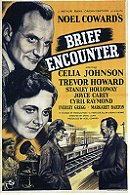
 533
533
 8
8
 8
8
